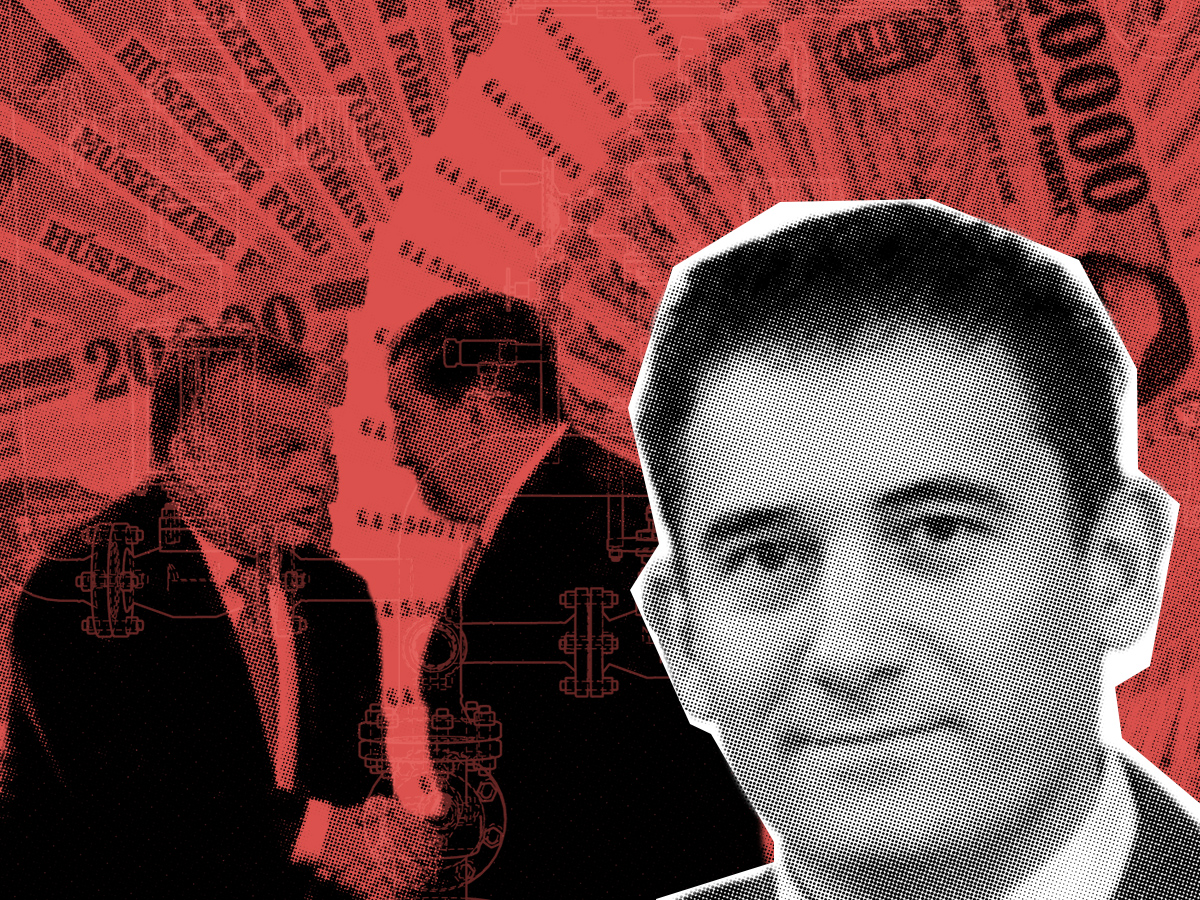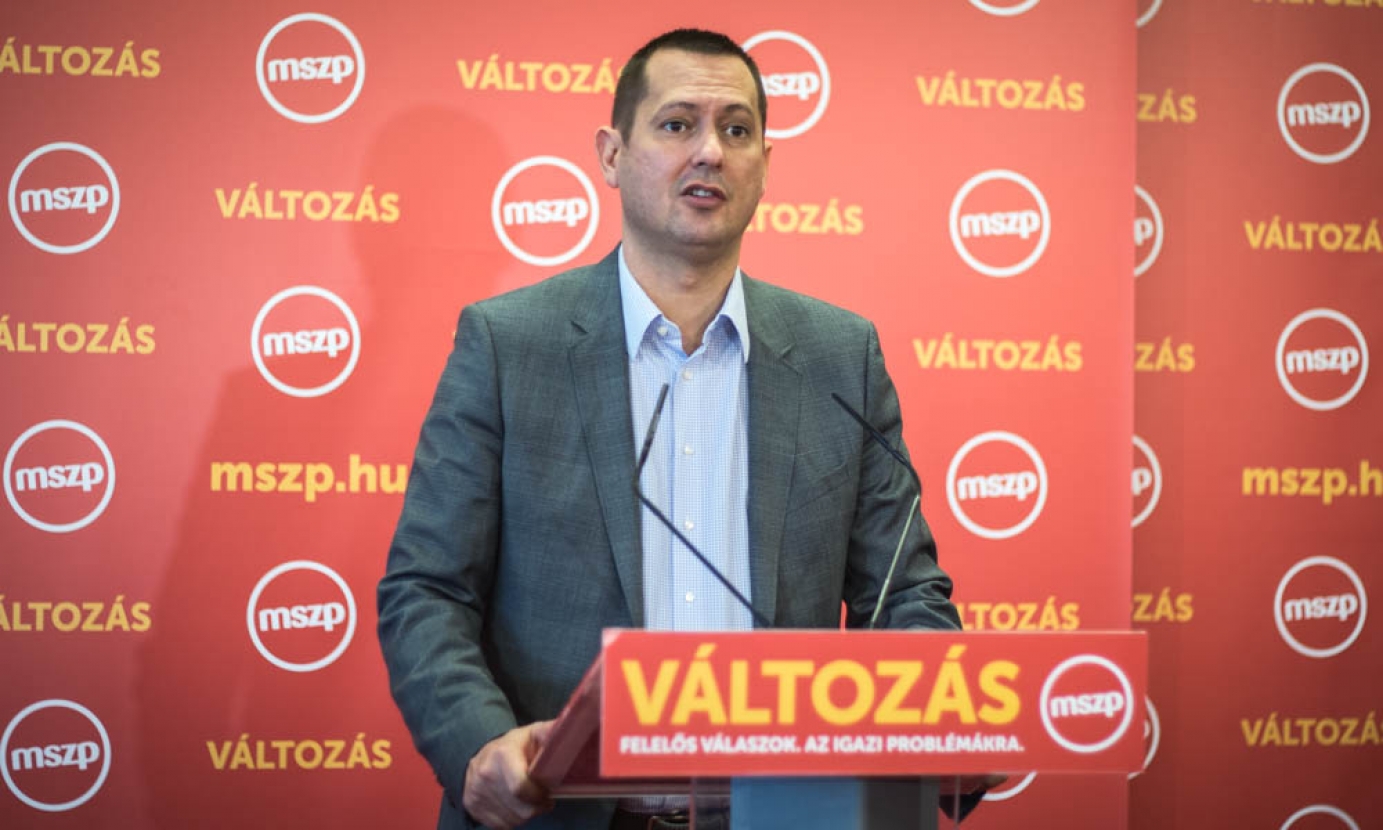Opposition politician’s businesses are thriving after he teamed up with businessmen close to Viktor Orban’s government

The Socialists, the former governing party in Hungary, have been vocal critics of the enrichment of businessmen close to the current government. In this year’s election campaign, they even proposed the introduction of an “oligarch tax”, which would have been imposed on those who gained their wealth from public funds.
However, one of their own politicians is closely cooperating with these business circles. In the past few years, a business group of Gergo Czegledy, an influential party leader in Budapest, won public tenders from state and local municipality companies mainly as a member of various business consortia.
The value of the contracts exceeds the value of 15 million euros, but Czegledy needs to share the bulk of it with his business partners. One of them is Tamas Varnai, a longtime member of the business circles close to Prime Minister Viktor Orban’s party, and Attila Boros, one of the main beneficiaries of Hungary’s controversial golden visa program. In addition, Czegledy’s company also cooperated in a public investment project with the firm of Lorinc Meszaros, Orban’s friend, who, thanks to lucrative state contracts won in the last few years, has become one of Hungary’s richest persons.
Even though Czegledy does not have a high profile nationally, he has a relatively long past in politics. He was the chief of cabinet of Miklos Hagyo, the former Socialist deputy mayor of Budapest, whose downfall about a decade ago was prompted by various corruption scandals. According to sources with knowledge about the internal issues of the Socialist Party, Czegledy has also been in close contact with Zsolt Molnar, currently one of the most influential party members. Molnar has often been criticized by other opposition politicians for building good relations with governing Fidesz party representatives during his political career. Laszlo Botka, the former Socialist prime ministerial candidate even accused him of betrayal, saying that Molnar was pursuing a campaign strategy that served the interest of Fidesz.
Czegledy responded to our questions with a rather long and angry letter, denying that he would be a beneficiary of the current system. He wrote that he has known Varnai for a long time, but, according to him, Varnai does not belong to the Fidesz business circles. He added that he did not meet Attila Boros, and that his firm’s relation with Meszaros’ company was only superficial. Czegledy also claimed that he worked hard to win these public tenders, and, in many cases, his offers were rejected, and he had to legally challenge the tender decisions in order to secure his wins.
Zsolt Molnar said that Czegledy is one of his political allies but he has no knowledge about his companies. The Socialist Party said that they do not investigate their members or monitor the private activities of their politicians.
Together with government-linked businessmen
After the 2010 landslide victory of Fidesz, it seemed that there would be no bright future for those on the left. Nevertheless, for Czegledy this looked like the right moment to start his business career. In June 2010, he bought a hairdressing and beauty company which he renamed Perfektum Project Ltd. and changed its profile to consultancy. A few years later, three new companies were formed on the basis of Perfektum Project, and this is how a four-member business group was established. During the past years, the group successfully won public tenders and has produced a spectacular growth.
The business group won public tenders in individual bids in the amount of 2.8 million euros. In addition, the companies of Czegledy applied for state and municipal projects also in cooperation with other firms, and these business consortia won tenders in the amount of 12 million euros. On top of these, Czegledy and his partners were also selected for several high-value framework contracts, under which they can get hired by state agencies to do additional tasks.
Czegledy’s group improved its performance year by year: while in 2011 it won only one tender, in 2012 it was already six, and by 2017 this number totalled to 29 (thanks to other companies of Perfektum, which also started to win tenders). Even though they were not always successful, they managed to win in almost one-third of the 300 tenders they applied for between November 2011 and June 2018. Czegledy claims, however, that they have had legal disputes with some of the state agencies and therefore they have not received full payment even from some of the tenders that they had won.
Czegledy’s most frequent consortium partners included companies in partial ownership of Tamas Varnai, a businessman with ties to the governing party. During Viktor Orban’s first government (between 1998 and 2002) Varnai was the managing director of Ezusthajo, a company that won several lucrative state contracts at the time. Now he is on the board of TV2, the flagship television station of the government-linked propaganda machine, owned by a businessman with close ties to Viktor Orban. An acquaintance of Varnai described him as a person with relations to the most important figures of the government-linked business circles, such as Arpad Habony, the main adviser of Orban, and Lorinc Meszaros, the childhood friend of the PM.
Out of hundred successful tenders, the Perfektum-group cooperated in 21 cases with companies of Varnai. They provided communications services for environmental development projects and organized events for state agencies.
Czegledy’s companies also partnered with a firm called Metrober Ltd. and won together three times on the tenders of the national road and rail construction investment company in the amount of 1.9 million euros. Their last joint tender victory was in August 2017, and a month later, Metrober was taken over by Attila Boros, one of the beneficiaries of the Hungarian golden visa program. According to data from the company registry, Boros had agreed to the purchase of Metrober before the company partnered with Czegledy.
Czegledy’s most valuable tender concerned the construction of the Budapest museum quarter. The state company implementing this project selected Perfektum and two other companies in 2015, for the tender worth 11 million euros. Responding to our questions, Czegledy said that his companies have not yet received any income from this project.
Local municipalities also cooperated with Czegledy’s companies in various development projects. One of them was a project of a local governmental office in which Czegledy cooperated with Lorinc Meszaros’ company.
The Perfektum business group has produced visible growth since its formation. While in 2011 its revenues totalled only 21 500 euros, they reached 2.3 million euros in 2015 and have remained at the same levels since then. Since 2013, Czegledy has received 2.3 million euros in dividends from his companies, records show. He claims, however, that they put this figure in their annual reports for bookkeeping purposes and the actual amount he took out of his businesses was lower.
He outlived Hagyo
During his political career, Gergo Czegledy has cooperated with Zsolt Molnar, an influential member of the Socialist Party.
According to Molnar, they have known each other for about ten years, since the time when both of them attended a political school in Budapest.

Zsolt Molnar, an influential member of the Socialist Party, source: mszp.hu
In 2006, Czegledy became a member of the inner circles of Miklos Hagyo, the influential deputy mayor of Budapest from the Socialist Party. Hagyo fell from power because of a string of corruption scandals a few years later, but Czegledy survived this largely unscathed. From 2008, Czegledy has managed to build a decent political career in Obuda, one of the biggest Budapest districts. At the same time, he also tightened his relationship with Molnar and joined his group of people supporting Csaba Horvath, a Socialist politician who was considering running for the mayor’s position.
Czegledy is currently leading the local Socialist branch in Obuda. He is also the chairman of an important local municipal body, the financial committee. The district is led by Fidesz, whose main opponent, on paper, are the Socialists, but there were cases when Czegledy avoided conflicts with Fidesz. This caused tension among left-wing parties in the district.
During the 2014 election campaign, the district’s left-wing parties learnt that the son of Fidesz MP candidate Erzsebet Menczer had been granted the rental of an apartment from the local municipality. Even though a Socialist politician was running against Menczer in the district, the Socialist Party was less critical than its smaller, left-wing political partner Egyutt (Together) Party, which filed an official complaint in the case. This step was not welcomed by Zsolt Molnar, who at that time led the Socialist Party’s national campaign and maintained a friendly relationship with Menczer. Molnar reprimanded one politician of Egyutt over the phone and said that “this was not the right move, we do not file complaints against each other.” Molnar even asked “not to do this anymore” in the future, according to a former member of the now-defunct Egyutt Party, who had knowledge about the phone conversation.
Responding to our question, Molnar said that the party looked into the matter but concluded that no crime had been committed. Afterwards, he asked Egyutt not to file a complaint. “It turned out that we were right,” Molnar said, referring to the fact that in the end the Prosecutor’s Office did not launch an investigation in the case. However, in Molnar’s opinion, the Socialist Party considered the apartment rental case a problem from a “political and ethical perspective.”
It would be stupid to starve
Czegledy still maintains a close relationship with Zsolt Molnar. According to a source who played an active role in the 2018 election campaign, Molnar “has his people in every district,” and he is on good terms with Czegledy. Czegledy’s district is important to Molnar, as the left still has a relatively high public support in that district, the source added. Responding to our questions, Molnar said that Czegledy is indeed his “strong political ally,” however, he also keeps similarly good relations with about a dozen other Socialist politicians. Czegledy added that they are in a “comradely relation,” and both of them “fight to defeat Fidesz”.
At the end of May, Molnar was re-elected as the head of the Budapest branch of the party. In this position, he has influence over various local municipal companies, where his Socialist allies currently hold several positions. For example, Gergo Czegledy is a board member of the Budapest public utilities service provider.
Thanks to all this, Molnar is one of the most influential persons of the party according to several Socialist politicians and people with in-depth knowledge about the inner workings of the party. “He is in charge of the last resources,” one of them said, referring to the fact that Budapest is the only remaining political and economic bastion of the once dominant party, which has been struggling financially for years.
In the meantime, Molnar has become a frequent target of criticism for maintaining good relations with Fidesz. His critics say that he is only interested in keeping the current political status quo. During the campaign for the parliamentary elections for years ago, the allies of the Socialist Party criticized Molnar for being too soft on some Fidesz politicians.
Before stepping down as the Socialist prime ministerial candidate in the autumn of 2017, Laszlo Botka even accused him of collaboration with Fidesz, but without presenting any proof. Molnar rejected these accusations. A leading Fidesz politician denied to Direkt36 that Molnar would be dismantling the Socialist Party from the inside on behalf of Fidesz. The source added, however, that Molnar is indeed paying attention to “having orderly relations with Fidesz.” Other Fidesz representatives described Molnar and similar opposition figures with ties to Fidesz as people who – in the midst of political battles – do not forget to represent their own interests. “They think it would be stupid to starve during the fight,” one Fidesz source said.
For the Hungarian company data we used the services of Opten.

